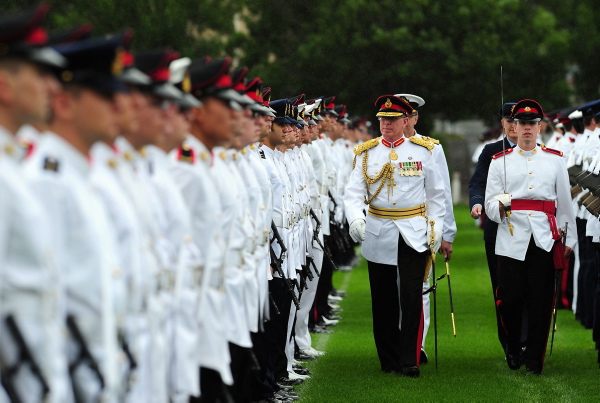
Military organisations have a formalism for describing capability that involves a number of factors but there’s distressing tendency to focus on equipment and systems at the expense of some of the others. This focus is a useful, particularly when thinking about acquisitions. However, as the Australian Army knows, the capability that matters most is the quality of its people, which explains why it spends so much time and money on education and training.
Recently I had the privilege of speaking at the 2nd Commando Regiment’s new Captains course in Holsworthy. The topic was the educational requirements of future operations, and I felt privileged because it was good to be in the presence of young officers who were seeking ways to improve themselves and the institution they love.
As I reflected on what I would say I could not help but return to one of the points I made in my The Future of War Debate in Australia paper. There is no doubt that the Army possesses smart people, including many who hold advanced degrees similar to those that the 2 Cdo captains and I discussed. Yet I could not help myself from thinking that that was not enough. Having educated smart people is just one part of what is needed to make an effective Army. An institution that knows how to manage and get the best out of such people is the real enabling factor for creating a force that prides itself on achieving outcomes rather than outputs.
Unfortunately, while critical and deep thinking is often spoken of in Army circles a conducive—and safe—environment for its practice is not. The Army’s cultural preference is towards ‘doers’ rather than ‘thinkers’, a leaning towards those who provide a ready answer rather than those who struggle to shape questions or who are willing to challenge existing orthodoxies. It must be admitted that there is good reason for the organisation to favour doers. The Australian Army is a tactical-level focused force which means that the emphasis must lay with getting tasks done. However, at present there is an unproductive and unbalanced schism between doing and thinking. I am not the first to make this observation. In 2009, then Lieutenant Colonel Richard King, published an insightful article in the Australian Army Journal titled, ‘How stupid are we?’ In it he examined the Military Appreciation Process, a mechanism that he believed encouraged planners to provide a solution to a problem instead of first trying to understand the problem. The distinction matters. One of the reasons why the United States got into trouble in Iraq was that its planners never paused to understand the enormity of the problem that they had to consider. A rationality check might have led to different decisions.
Recently, ASPI published a program for the educational improvement of the ADF. Its authors were Hugh Smith and Anthony Bergin. Their recommendations were on the mark and hopefully many will come to fruition. However, I could not escape the sense that Smith and Bergin were tackling the surface manifestation of a deeper cultural problem, one that prevents the ADF from obtaining full value from the educational capabilities of its people. Advanced education, as I explained to the 2 Cdo captains, can only be of benefit, but I suspect only of personal benefit rather than that of the institution. Unless the Army learns to value thinking-focused work more highly than task-focused work the force’s intellectuals will struggle to fulfil their potential. In the end, it is a matter of capability—people capability, the most important of all.
Albert Palazzo is a senior research fellow at the Australian Army’s Land Warfare Studies Centre. The views expressed here are his own and do not reflect those of the Department of Defence or the Australian Government. Image courtesy of Flickr user Department of Defence.

